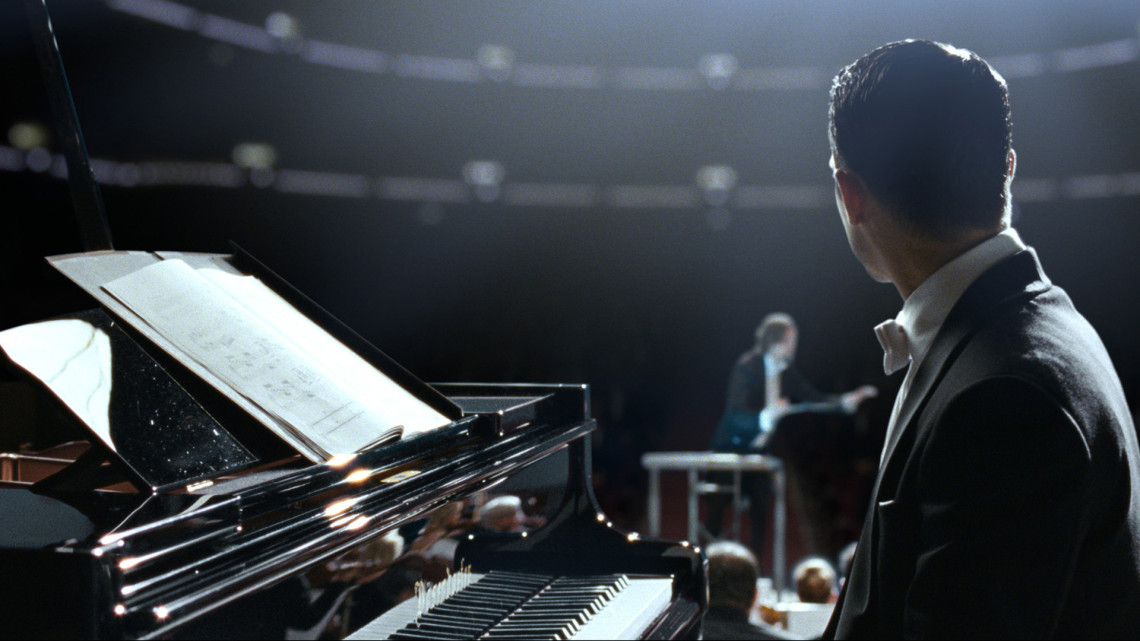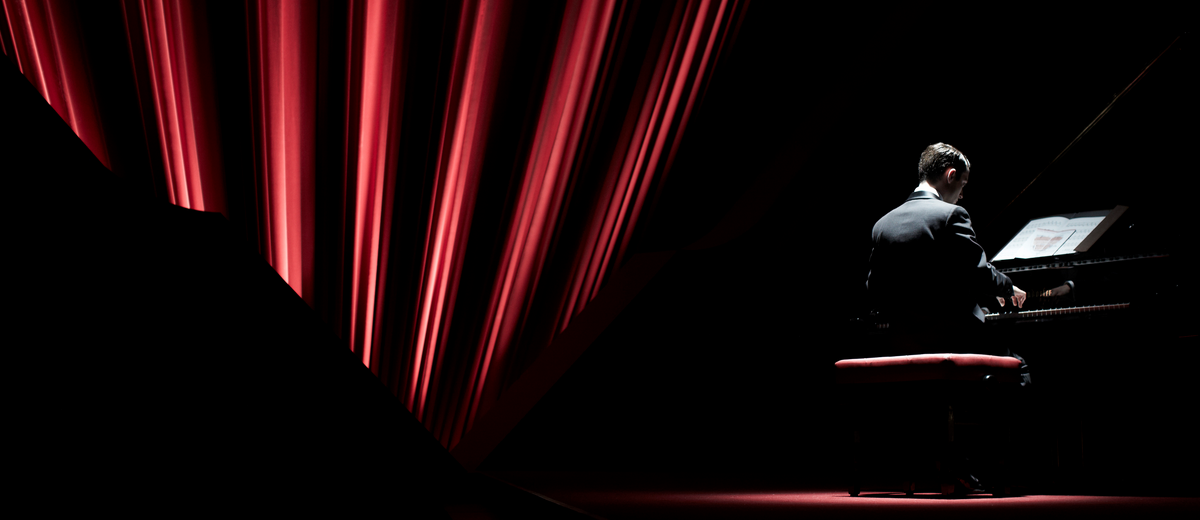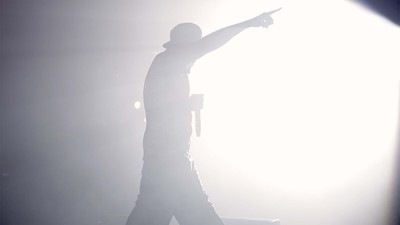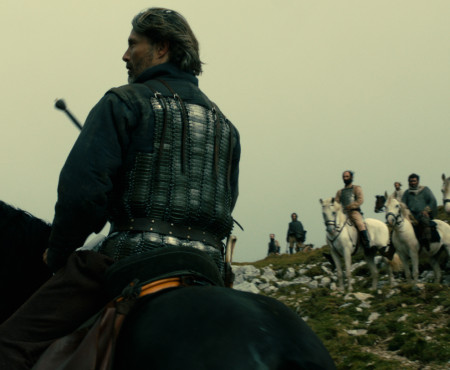There have been several comparisons made between Spanish director Eugenio Mira’s new thriller Grand Piano and the work of De Palma and Hitchcock, comparisons that while not totally unfounded, oversimplify a film with a style that’s wholly unique, teetering on the edge of the absurd. And to that end, when one considers Grand Piano, one cannot approach it strictly from a place of “good” or “bad” or “so bad it’s good.” Therein lies the complexity that largely sets it apart from the directors and the films it pays homage to.
The film stars the wide-eyed ball of neuroses that is Elijah Wood, playing a piano virtuoso named Tom Selznick who is reluctantly poised to return to the stage after a five year sabbatical. When we meet Tom, arriving in Chicago to perform at the fancy concert his more famous movie-star wife (Kerry Bishe) has organized, he’s still clearly grappling with the incident that forced him into early retirement. Specifically, a concert where he choked and subsequently humiliated himself while performing a notoriously difficult piece composed by his deceased mentor.
As he sits down to the priceless grand piano that once belonged to the mentor, he finds notes scrawled on his music sheets that threaten to kill him and his wife via sniper if he doesn’t play every single note to perfection. Later, an earpiece connects him to his gravelly voiced would-be assassin (John Cusack, acting up a tsunami), and the rest of the movie finds Selznick at the piano literally playing for his life whilst simultaneously playing a psychological cat-and-mouse game with the stranger in his ear, watching his every move.
And yes, with its split-screens, long tracking shots, and inventive editing, Mira’s visual style does recall the work of other iconic suspense filmmakers. But beyond that, Grand Piano is a strange amalgamation of the B-movie horror and the bottle thriller (think Phone Booth): sleek and calculated in some aspects yet jittery and atonal in others. Much of the calculation comes from the stylistic camera work, while the unfocused quality of the piece is mostly thanks to a narrative that fluctuates between moments of intensity to moments of (awkward) humor and pseudo-camp.
But again, none of this is quite enough to make it bad. Somehow, the lack of focus is complemented by the visual flourishes, making the film at the very least amusing, if not compelling. In its first act, the narrative toys with (but unfortunately drops) the possibilities of a ghost story, or perhaps hallucinations from the jittery Tom, who Wood plays with a consistency and a seriousness that is admirable amid the noise. He can be commended too for some great piano-acting, buoyed by a fantastic score from Victor Reyes, who melds original music with arrangements of Beethoven that are as beautiful as they are thrilling.
Indeed, the film’s biggest point of interest isn’t its conceit, and certainly not its conclusion (the final act is disappointingly predictable) but the two main characters of the piece: Tom Selznick, and the grand piano. If one is inclined to view Selznick’s stage fright as a metaphor, perhaps it could be described as a metaphor for the character’s own crisis of masculinity.
There are underlying threads of gender panic throughout the piece, that manifest themselves first in the backstory of Selznick’s inability to “get it up” for the piano at the disastrous concert that nearly ended his career, and continue to show up in other aspects of his life. While at first glance the perpetually baby-faced Wood seems an unlikely choice to play a seasoned musician coming out from retirement, his casting is perfect: he’s physically smaller than everyone else in the movie, including his statuesque, one-dimensionally written wife who is lovable but domineering and wields a commanding power that clearly makes Selznick uneasy.
And it’s only when Selznick’s wife goes from the lovingly controlling force in his life to the damsel in distress that he’s suddenly and miraculously able to overcome his stage-fright, leading to a final act that poses him as the take-no-shit hero he didn’t think he could be. It’s unfortunate that the underlying masculine anxiety in the film isn’t further explored, perhaps resolved in less of a normative and anticipated way. It’s an interesting element that like most things in this movie, gets drowned out by the noise of convention, which can be said for a lot of films.
Perhaps what can’t be said is that, other than its final act, the movie shifts from one narrative stream to another, from one filmic flourish to the next, and engages by its sheer determination not to be pegged beneath the name of some director of yesteryear. It tries things, and does things, and yes, not all of them work. But like Selznick himself, while Grand Piano certainly doesn’t best any of the icons of its genre, its improvisations are interesting, and at least that’s something.





















